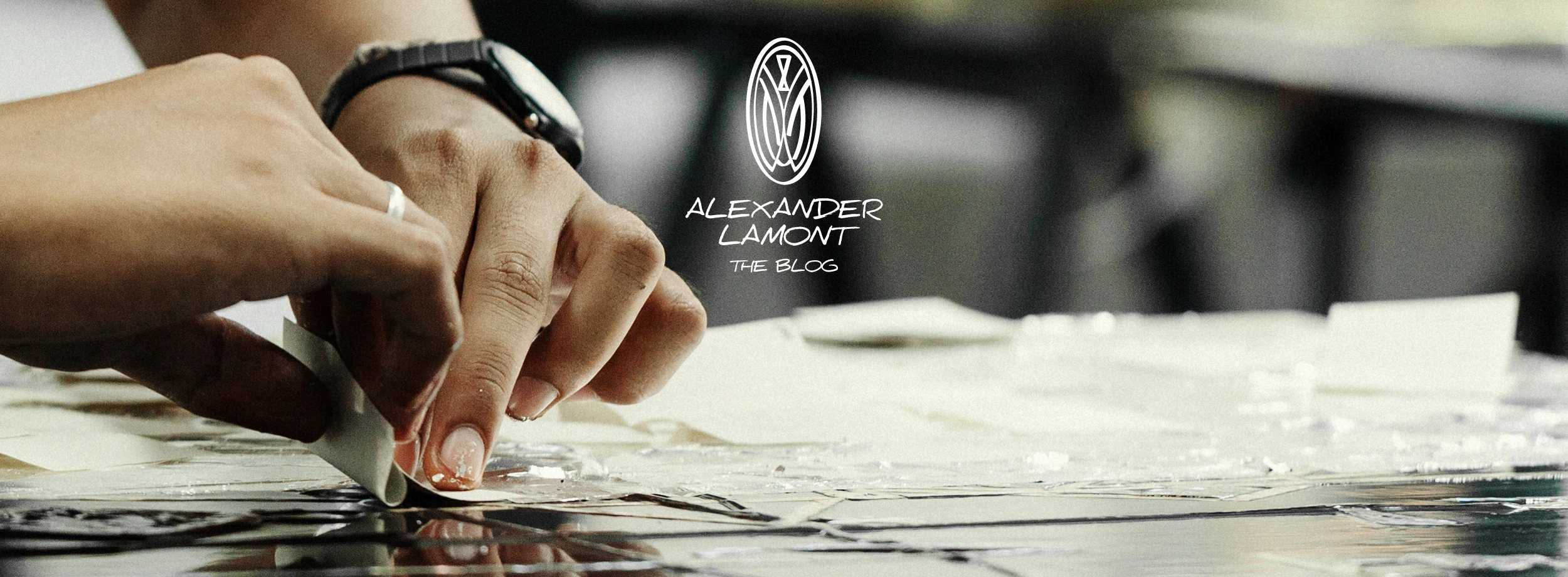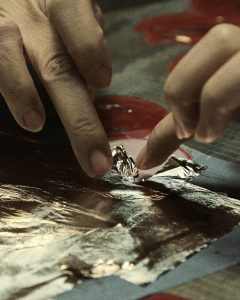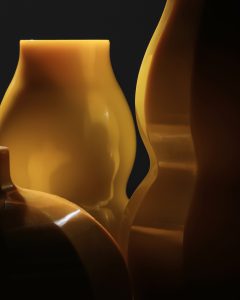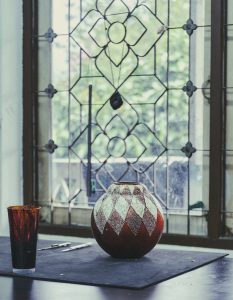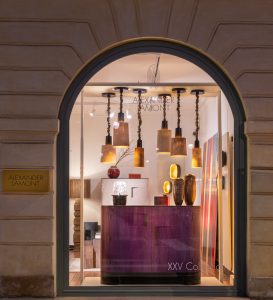
This is the story of the creation of a collection, or collections of vases that was a longing I had for many years – to try my hand at designing objects of intrigue and movement using techniques that marry the metalwork traditions of Europe and the lacquerwork methods of Japan.
I was deeply inspired by the techniques of Jean Dunand that I had seen first in the musée des arts decoratifs, and later in galleries on the rue de Seine and in the famous Christies sale of Yves Saint-Laurent’s personal collection in 2009, particularly his vessels; metal vases in simple hammered forms decorated with precious metals, patination and later, after Dunand was introduced to the Japanese lacquer artist Sugiwara by Eileen Gray, his vases decorated with the urushi and eggshell of Asia.
The actual pieces were distant and priceless, but the ancient techniques all lay at my hands after well over a decade building my workshops in lacquer, eggshell, metalwork and other techniques. I found the deco patterns of Dunands work beautiful but rigid and stylized, and I wanted to find ways that could bring an animated and more abstract quality to the meticulous crafts.
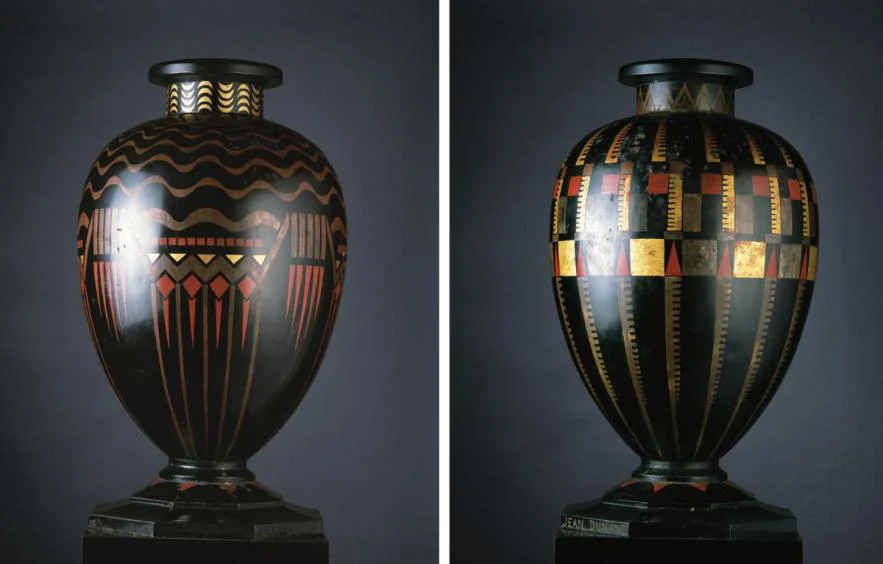
I started with the forms and made swelling, simple shapes in cast brass and aluminium and hammered forms in copper. The weight and durability of the metal base was a key aspect in Dunands work. Most lacquerwork in Asia is applied to wood, bamboo, ceramic or even resin. There is the dry lacquer process too which is strong but enormously time-consuming. Having a metal base would give the weight, temperature in the hands and longevity that I want with all my work.
I wanted to decorate with abstract and dynamic liquid aspects given the fluid lacquer that would be applied over cooled but recently molten metal. I splashed the vases with ink to see the effect and found that this sense of powerful movement was a strong direction and the first group became ‘Nebula’ splashed with ink and then eggshell and abalone were applied carefully following the lines of the ink to capture the energy of the original splash. Layers of black lacquer were applied to build a smooth curving surface filling and surrounding the splashes and finally sanding and polishing revealed them again.
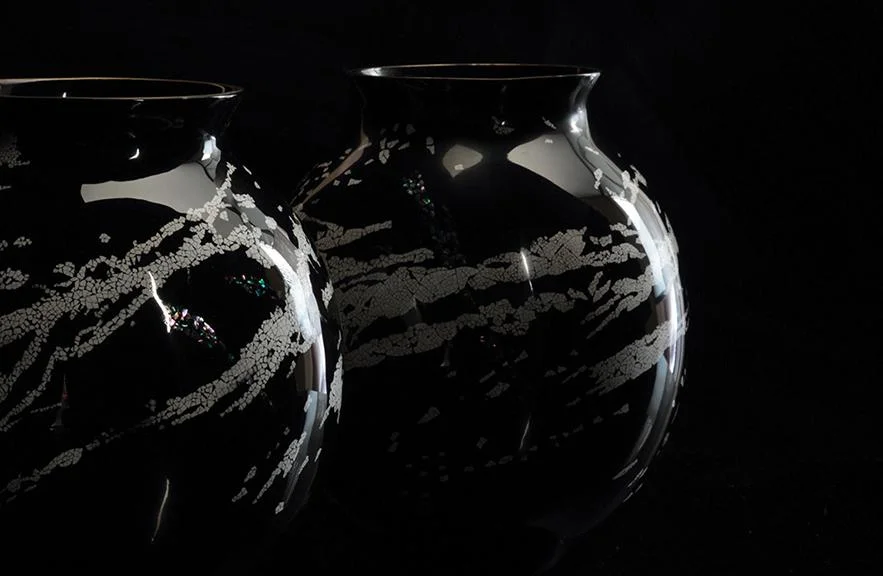
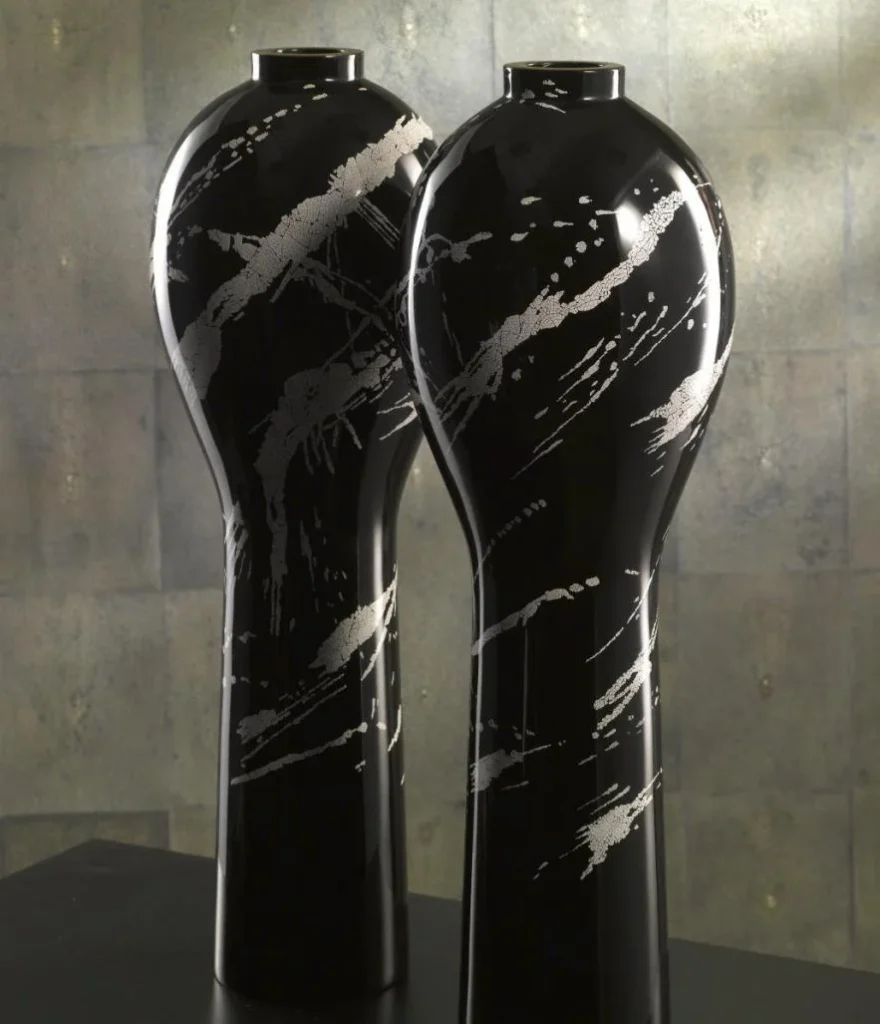
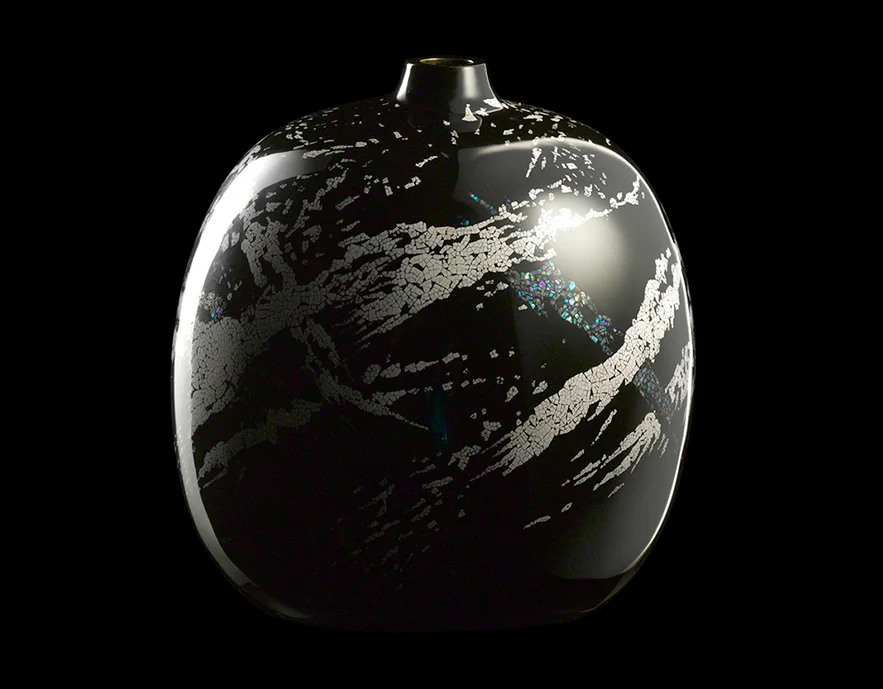
After the first Nebula vases were completed I felt the sense of the night sky on the spherical surfaces; tiny lights of shell spread across the vast blackness like the majestic, infinite Milky Way I had seen when trekking in Nepal. I looked at the maps of stars and the lines drawn between them by astrologers and astronomers to explain the galaxies. The Zodiac pattern conveys this in the shapes that dance across the surfaces; triangles of white that shift and play around and beneath the lacquer creating a floating feeling.
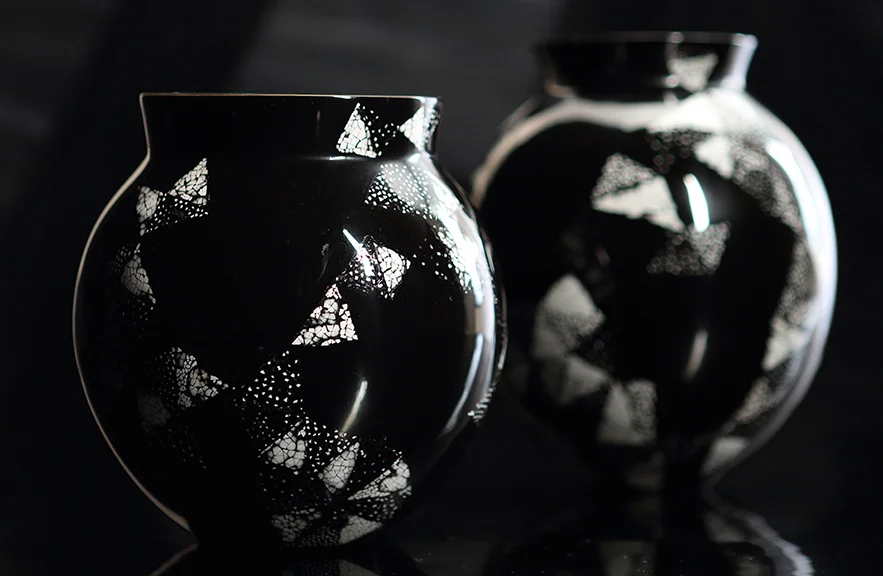
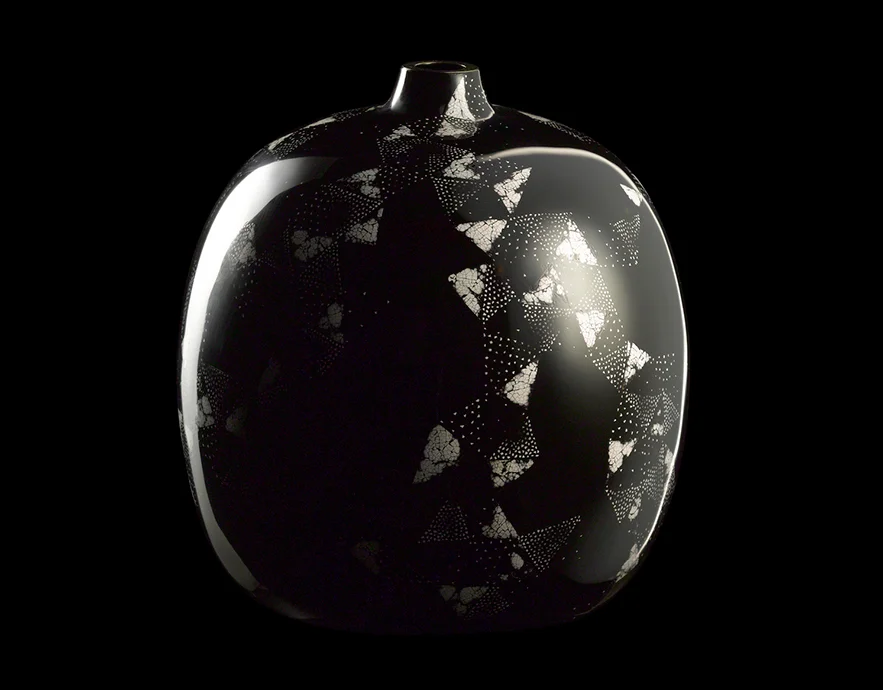
I also wanted to entirely cover vases with eggshell, because the surface and texture of total coverage created shadows and a luminousness like the moon. Cool, white, subtle craquelure was gorgeous to the touch and haunting when lit. I called this group Porcelain Noir and Rouge depending which lacquer I used to fill the surface.
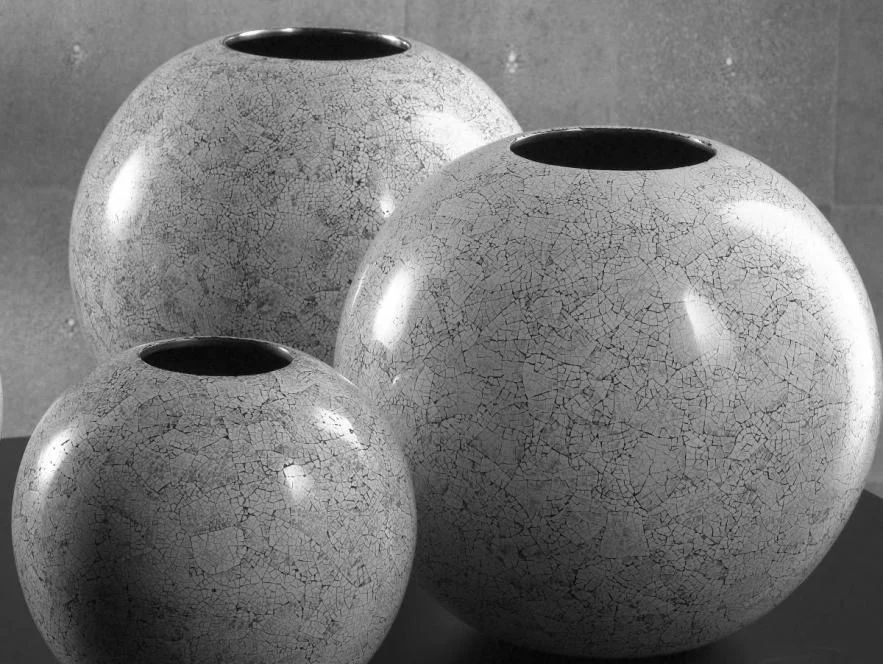
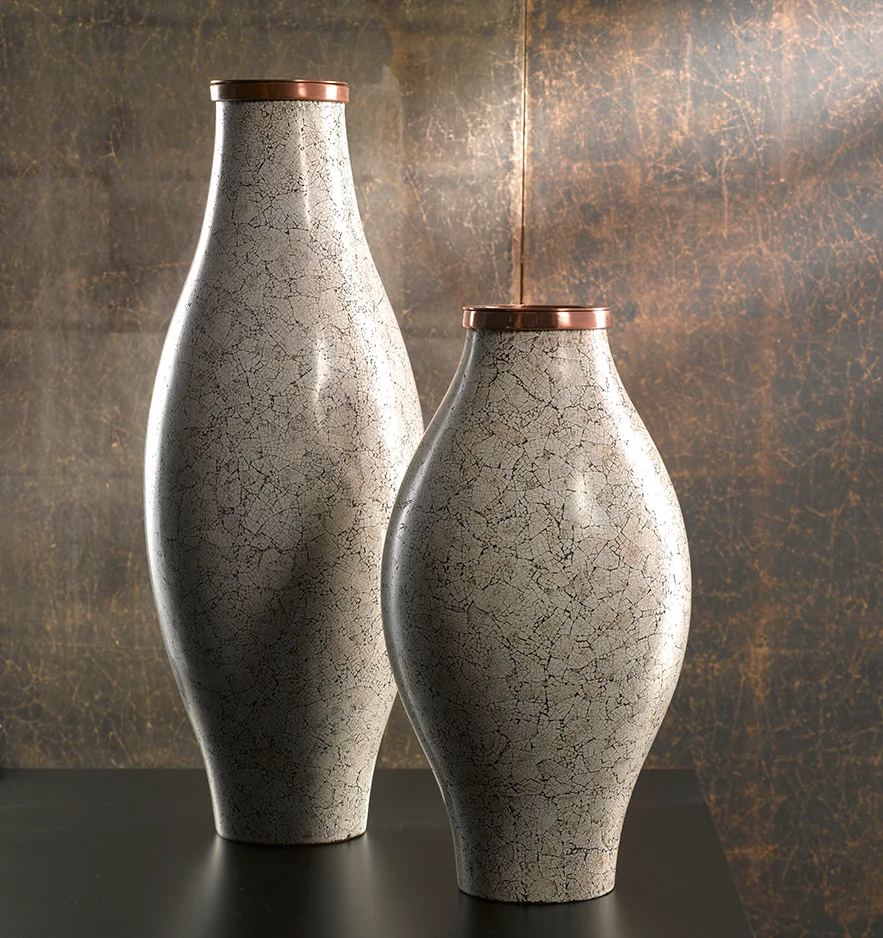
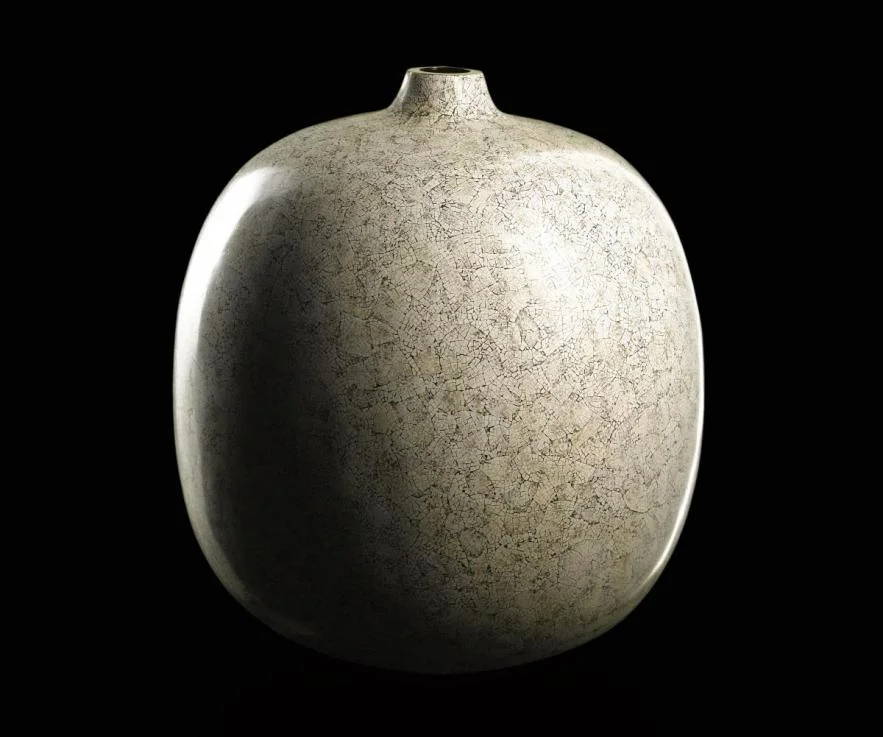
The Pleiades collections were a special project for me. Every vase was made about 20 metres from my desk so I watch as they take shape and enjoy the process of the metal being prepared and cleaned and later the gradual fine work of shell and lacquer. They are dull and uneven for much of the time while being created but finally, after between 2 and 4 months depending on the size, they are revealed in the polishing stage to be striking, rare contemporary expressions of the universe around us, of my love for past masters and of my wish to re-imagine the noble, slow techniques and materials that continue to inspire me in this world increasingly digital, in a hurry and in love with poor fast things.

